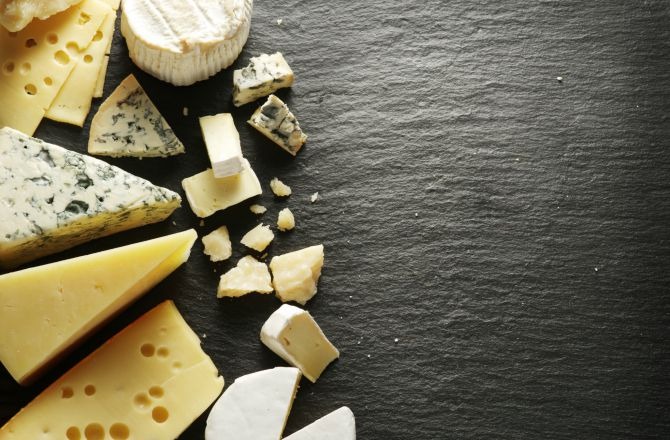The 4 Unhealthiest Cheeses, And The 5 Best Cheeses
Cheese gives our favorite foods flavor and zest. There's a reason that the grilled cheese is famous among Americans — it tastes delicious! But with many delicious foods come a lot of fat and calories.
Click here for How to Make the Perfect Grilled Cheese slideshow.
According to an article in Time Magazine, four out of five experts say that cheese is part of a healthy diet. However, there are certain cheeses that are healthier than others.
Worst: Cheese Products
The FDA has very strict regulations on what is considered a cheese and what is not. According to an article on Eat This, "Anything that's processed cannot legally be sold as 'cheese,' and is marketed instead as a cheese product'—meaning it contains less than 51% cheese." We know to stay away from processed foods but you may also want to avoid processed cheeses.
Worst: Low-Fat Cheese
Any food that eliminates food, fat, or sugar should be on your radar. These low-fat alternatives can contain harmful ingredients. Not to mention, you miss all of the benefits of full-fat cheese.
Worst: Reduced-Sodium Cheddar
Whenever you see a label that says reduced-fat, reduced-sugar, or reduced anything for that matter, you should find out what they are substituting with. Reduced-sodium foods have the same problem so although low sodium may sound appeal, check your ingredients label before you decide to purchase.
Worst: Sweetened Cream Cheese
Cream cheese may be perfect on a bagel but again, watch out for ingredients. Some cream cheese spreads market that they are healthier, however many of the flavored varieties contain added ingredients such as aspartame, which has been linked to gastrointestinal problems.
Best: Cottage Cheese
Cottage cheese is not only a valuable sources of protein, clocking in at 15 grams per serving, but it is also low in sodium. In a 2014 study, cottage cheese was found to have the lowest sodium measurement among all of the cheeses tested.
Best: Full-fat Cheese
Chuck Benbrook, research professor at Washington State University's Center for Sustaining Agriculture and Natural Resources, praises organic, full-fat cheese. He conducted a study and found that organic cheese and other dairy products have 62 percent more omega-3 fatty acids than conventional dairy products.
Best: Organic Cheese
Fat is never to blame when it comes to cheese. A recent study in the American Journal of Clinical Nutrition found that people who eat around eight servings of full-fat dairy per day had a 23 percent lower risk of developing type 2 diabetes, compared to people who ate about a serving or less a day. Just be aware of how much a recommended serving size is before you go crazy.
Best: Parmesan Cheese
Parmesan is naturally higher in fat than other cheeses but a little sprinkle goes a long way on a fresh salad or pasta dish. A study published in Flavour found that parmesean cheese is naturally strong in umami, which makes low-fat foods taste better and is known to improve digestion.
Best: Swiss Cheese
Registered dietitian Lindsay Malone told Time that by eating cheese sparingly, you can reap all of the benefits such as calcium, protein. Two slices of Swiss cheese contain 44 percent of your daily calcium intake, and 15 grams of protein.
The accompanying slideshow is provided by special contributor, Anne Dolce.
